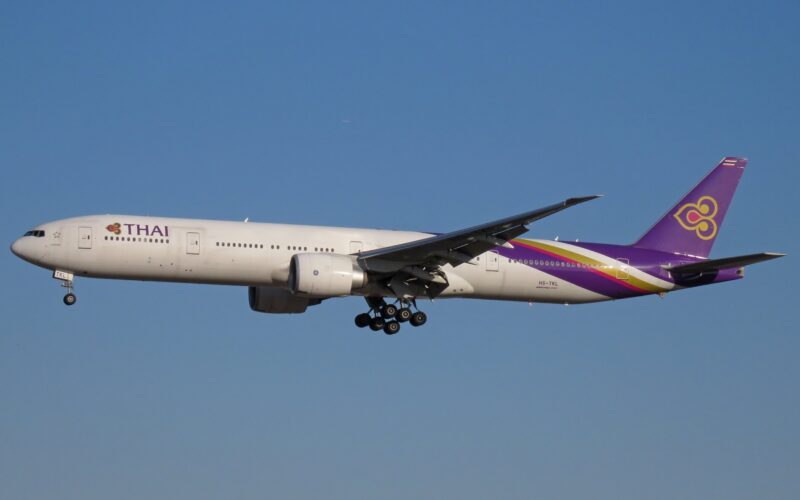The Federal Aviation Administration issued an airworthiness directive regarding the General Electric GE90 engine powering the Boeing 777. The notice follows an uncontained engine failure that affected a Thai Airways aircraft.
The Boeing 777-300 registered HS-TKL was carrying out flight TG-970 from Bangkok Suvarnabhumi Airport (BKK), Thailand, to Zurich (Switzerland) with 339 passengers and 20 crew, on October 20, 2019.
During the takeoff run from runway 01L, the flight crew detected a failure in the left engine and decided to reject the takeoff. The plane returned to the gate. None of the 359 occupants were injured.
Upon inspection, it appeared that the left General Electric GE90-115B engine suffered an uncontained failure that projected debris on the aircraft fuselage and the other engine. The technical investigation determined that it was due to a failure of the high-pressure turbine rotor seal.
Thai Airways Intl Boeing 777-300 (HS-TKL, built 2012) suffered an uncontained failure of ist left Engine (GE90) whilst taking off runway 01L at Bangkok on flight #TG970 to Zürich. None of the 359 people in board was Hurt. Damage is being assessed. https://t.co/PSCm0vPBlB pic.twitter.com/0DSwKpNmbl
— JACDEC (@JacdecNew) October 21, 2019
“The root cause of the interstage HPT rotor seal failure is still being investigated,” said the FAA in the airworthiness directive published on May 12, 2020. As an interim action, the authority requires ultrasonic inspections (USIs) of the interstage rotor seal on all GE90-110B1 and GE90-115B engines. Upon the initial USI, a new one must be carried out every 100 cycles. It also asks for the removal of the interstage HPT rotor seal at the next engine shop visit.
The FAA estimates the cost of the inspection at 170$. The replacement of the part, however, amounts to $548,500 per engine. The directive is effective from May 27, 2020.

